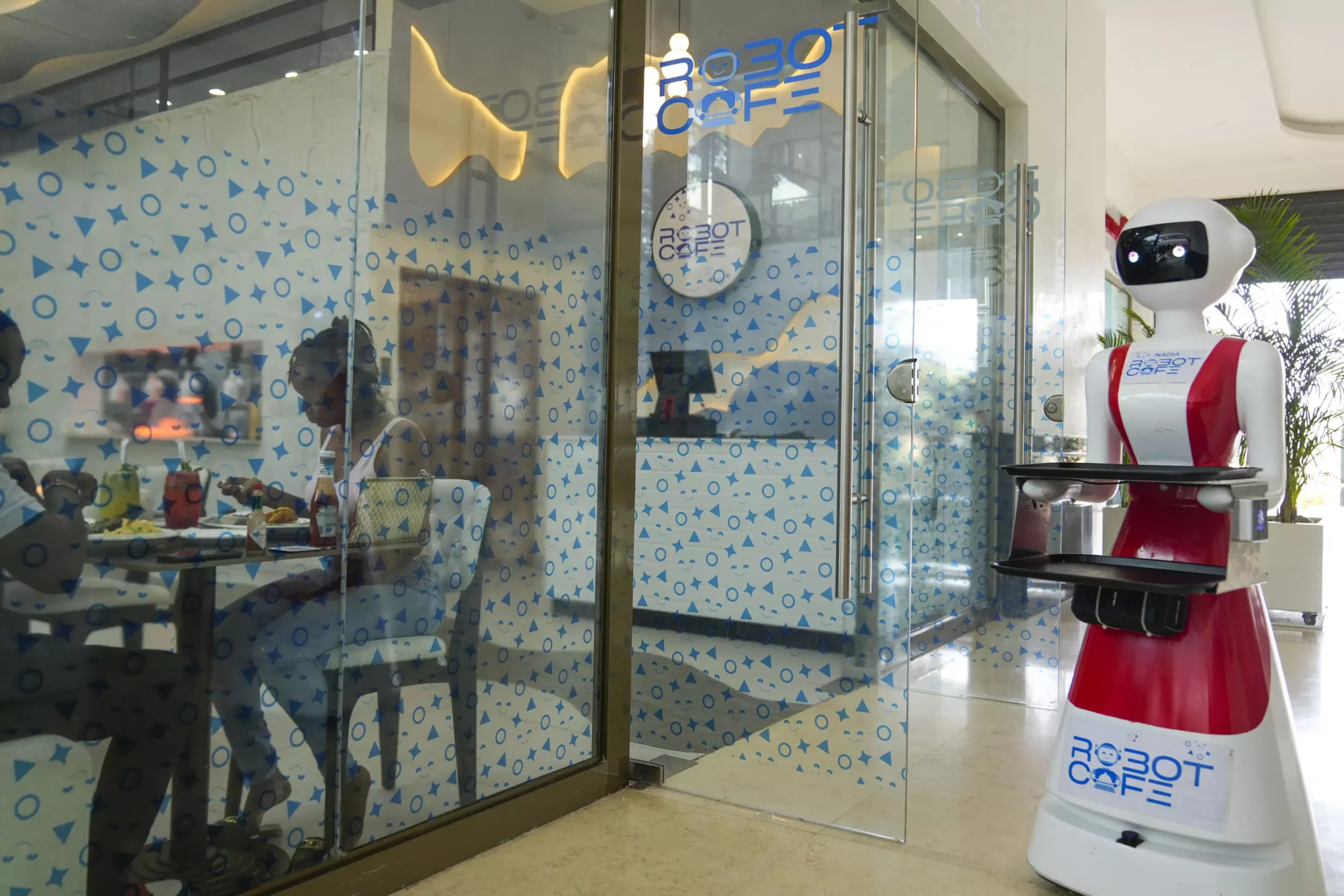In Nairobi, the bustling capital of Kenya, there has been a surge in technological advancements. The city has become a thriving hub for startups and innovations, earning itself the nickname “The Silicone Savanna.” One of the latest additions to Nairobi’s tech scene is the Robot Cafe, a unique eatery that features robots as part of its serving staff.
The Robot Cafe in Nairobi is believed to be the first of its kind in East Africa. Here, three robots named Claire, R24, and Nadia glide among human waiters, serving food to mesmerized customers. Cafe owner Mohammed Abbas was inspired to invest in these preprogrammed robots after experiencing robot service in Asian and European countries. While importing the robots was a costly endeavor, Abbas believes that the investment has been worthwhile, as the restaurant is consistently busy with curious customers eager to experience robot service.
Customers at the Robot Cafe are entertained by the sight of robots delivering plates of freshly prepared meals on their inbuilt trays. The robots are not programmed for extensive conversations but can greet customers with phrases like “Your order is ready” and “Welcome.” Customers interact with the robots by pressing an exit button after picking up their food. The robots are controlled by human waiters through an application on an iPad. While the robots play a key role in serving food, human waiters are still essential for taking orders and providing personalized service to customers who prefer traditional dining experiences.
As the use of robots in the hospitality industry becomes more common, concerns about their potential impact on the future workforce have arisen. In Africa, where the population is predominantly young, with a median age of 19 years, the introduction of robots in establishments like the Robot Cafe could signal a shift in the way service is provided. However, the cafe manager, John Kariuki, maintains that robots are not a complete replacement for human waiters. He emphasizes that the robots are expensive to acquire and cannot perform all the functions that human waiters can. Therefore, while robots may streamline certain aspects of service, they are not a cost-effective solution for businesses looking to cut labor costs.
Hospitality industry expert Edith Ojwang believes that there is room for robotic and human service to coexist harmoniously. She emphasizes that the hospitality industry caters to a diverse clientele, with some customers preferring the efficiency of robotic service while others value the personal touch that human servers provide. Ojwang asserts that the introduction of robots in establishments like the Robot Cafe does not pose a threat to human labor but rather offers an additional option for customers seeking a unique dining experience.
The Robot Cafe in Nairobi represents a glimpse into the future of the hospitality industry, where technology and tradition intersect. While robots may enhance efficiency and novelty in dining experiences, human waiters continue to play a crucial role in providing personalized service and human connection. As the industry embraces technological advancements, finding a balance between automation and human touch will be essential for meeting the diverse needs of customers in an ever-evolving marketplace.


Leave a Reply